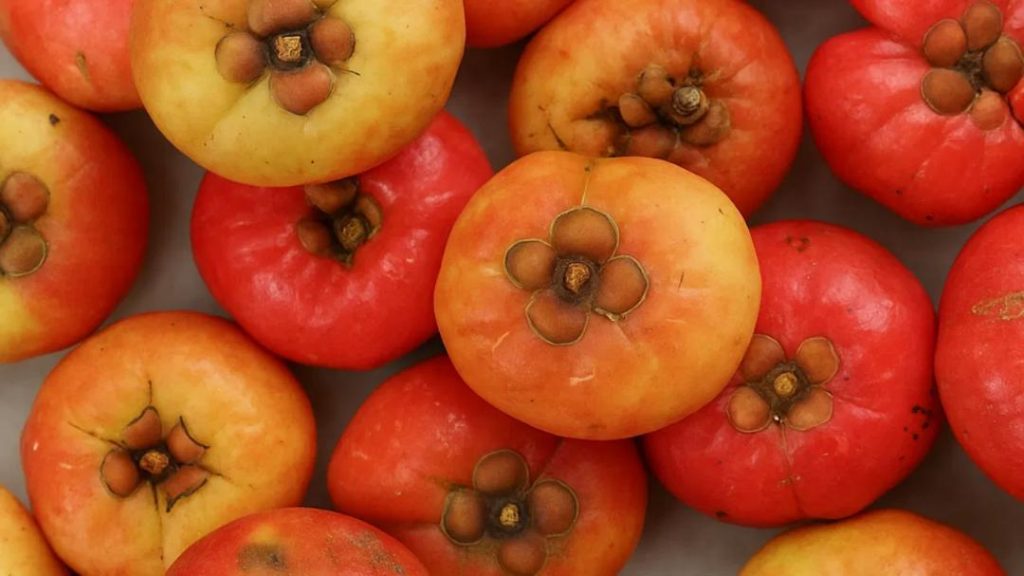
Did you know about this Garcinia species from Assam?
Deep in the lush forests of Northeast India, there is a hidden treasure that has been revered by local communities for generations. Khuji Thekera, scientifically known as Garcinia morella, is a unique sour fruit that is prized not only for its tangy flavor and digestive benefits but also for its anti-inflammatory properties and versatile culinary uses. In this blog post, we will delve into the world of this fascinating fruit, its traditional uses, and its significance in supporting local communities and preserving ecological knowledge.
What is Khuji Thekera?
Khuji Thekera is a deciduous tree that grows up to 30 meters tall, with a trunk diameter of up to 1 meter. Its bark is smooth, grayish-brown, and fibrous, while its leaves are elliptical, dark green, and shiny. The fruit is a drupe, with a single seed surrounded by a fleshy, sour pulp. The pulp is the edible part, which is rich in malic acid, tartaric acid, and citric acid, giving it a unique tangy flavor.
Traditional Uses
For centuries, Khuji Thekera has been an integral part of the traditional medicine and cuisine of Northeast India. The fruit is used to treat various ailments, including digestive issues, fever, and skin problems. The bark and leaves are also used to treat respiratory issues, such as bronchitis and asthma. In addition, the fruit is believed to have anti-inflammatory properties, making it a popular ingredient in traditional remedies.
Culinary Magic
Khuji Thekera is a versatile ingredient that can be used in a variety of dishes, from sour curries to herbal teas. The fruit is often used to add a tangy flavor to traditional dishes, such as rice, lentils, and vegetables. It is also used to make a type of chutney that is served with rice, bread, or as a condiment. In some parts of the region, the fruit is used to make a refreshing herbal tea that is believed to have various health benefits.
Sustainable Wild Harvest
Khuji Thekera is a non-timber forest product that is harvested sustainably from the wild. Local communities have been harvesting the fruit for generations, and it is an important source of income and food security. The sustainable harvest of Khuji Thekera supports local livelihoods and helps to preserve traditional ecological knowledge.
Ecological Significance
Khuji Thekera is an important component of the forest ecosystem, providing food and shelter for various animals and birds. The tree is also a natural pest repellent, helping to maintain the balance of the ecosystem. In addition, the fruit is a valuable source of nutrition for local communities, providing a natural and sustainable source of vitamins, minerals, and antioxidants.
Conclusion
Khuji Thekera is a unique and fascinating fruit that has been revered by local communities in Northeast India for generations. Its tangy flavor, digestive and anti-inflammatory benefits, and versatile culinary uses make it a valuable ingredient in traditional medicine and cuisine. The sustainable wild harvest of Khuji Thekera supports local livelihoods and helps to preserve traditional ecological knowledge, making it an important component of the region’s cultural heritage.
Source:






